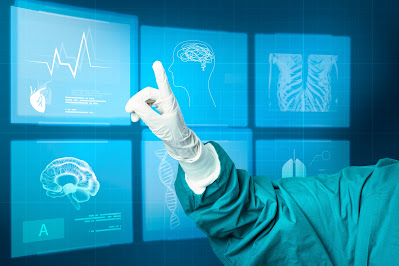DMS is vital for the healthcare industry.

Every day, hospitals, clinics, and even personal health providers must deal with massive amounts of medical records, insurance claims, and other documentation. After seven years, physicians must keep their patients' medical records and information, including sick patient data. All healthcare institutions must adhere to similar rules required by law. In essence, there is a tremendous amount of paper documentation in a healthcare facility at any one moment.
This is when a document management system integrated with your primary system comes into play. A design like this might relieve the records department of all major and minor hospitals and clinics of their workload. Let's look at the significant advantages of utilizing an electronic document management system for healthcare industry.
Document management systems play an essential function in the healthcare sector.
Reduced Costs
Document management software (DMS) provides one of the most significant benefits in the healthcare sector: cost savings. In the following ways, it is possible to cut expenses significantly.
Reducing Material and Equipment Expenditure
Electronic records will save your organization money by ensuring that it spends less on paper, cartridges, and printers that must be replaced or repaired. Aside from the initial cost, these devices require regular maintenance and use electricity. All of this adds up to a monthly fee that you don't see.
Fewer Storage Requirements
Larger hospitals must give the record-keeping and archives department sweeping floors. Ensure there is adequate space for medical treatment and other activities fundamental to the facility's operation. However, all patient records may be digitized and stored on on-site servers, which will save you a lot of space.
Switching to a cloud-based data storage solution would eliminate the need for costly servers, as well as their maintenance. Aside from that, cloud storage consumes no space on your hard drive so that you can save all of the facility's capacity for more and improved services.
Reduced staffing costs
Switching to a paperless system will result in a significant decrease in administrative personnel. Because all necessary information will be accessible immediately, employees will not need to generate or retrieve physical documents.
There are no additional costs for retrieval.
If you employ filing services, you must pay a certain fee every time you ask for or return a paper document. However, if you can digitize the entire system platform, you may search for medical information in the hospital's vast database without going through a mediator.
The turnaround time is reduced.
Paper-based records have several drawbacks, including the fact that they are mainly physical materials. They must be carried from the archives to the relevant department by hand. This is a time-consuming and inconvenient procedure that may take hours, if not longer, for huge facilities. On the other hand, a digital DMS can quicken the retrieval of vital records to a few seconds.
Finally, many departments located in different parts of the same facility can access the same document at the same time. In the future, medical data will be stored in a blockchain. This system can eliminate the need for paper copies by maintaining real-time payment and billing information as well as patient medical data.
In addition, there are digital platforms that enable real-time collaboration. Users will be able to make modifications to individual records without making irreconcilable changes. It will result in far fewer mistakes and redundancies in the long run.
Productivity is Increased
With a sophisticated DMS, you may significantly cut down on time it takes to access multiple patient files simply by entering the relevant search term. Each electronic document is assigned a unique identifier that may be used to search for it quickly. In other words, physicians and hospital executives will be able to explore a patient's name and obtain their entire medical history and any relevant records in seconds. This will allow them to devote more time to value-added activities.
It Will Eliminate Human Accident-Making Errors
When dealing with a large number of paper documents, it's near impossible to avoid making mistakes. It has the potential to pollute your office. In the long run, clutter raises the risk of losing or misplacing crucial documents and other paperwork.
A computerized DMS can help reduce adverse drug events, such as incorrect dosages or ineffective treatments. This will aid in the safety of patients and shield doctors from being penalized by regulatory and legal authorities.
Create Audit Trails to Increase Security
The username, time, and date for each operation that has occurred in a patient's file will be recorded in the audit trail. This will enable the administrators to keep track of all record creation and retrieval actions, assuring the records' security and integrity.
The DMS procedure will validate that all necessary business procedures have been appropriately followed after correctly completed. It will also assure that the material has been accurately recorded, managed, stored, and disposed of at the proper moment.
It aids in maintaining regulatory compliance.
Patient data security and protection is a primary regulatory demand. Many legislation has been passed to guarantee the privacy and security of patient health information. In this example, a digitized patent DMS allows all paperwork to be converted into electronic files that can be used to control information access. At the same time, it will improve the confidentiality of patient data.
Patients that are healthier as a result of it
All of the benefits listed above can be obtained by implementing a state-of-the-art document management system to simplify operations and improve production. In a nutshell, the less time and money spent on administrative paperwork, the more resources available to the employees. This will result in them devoting far more time and effort to the services that truly provide superior healthcare.
In the end, your new DMS system will make your patients happier and healthier.


Comments
Post a Comment